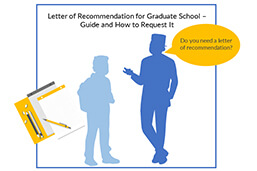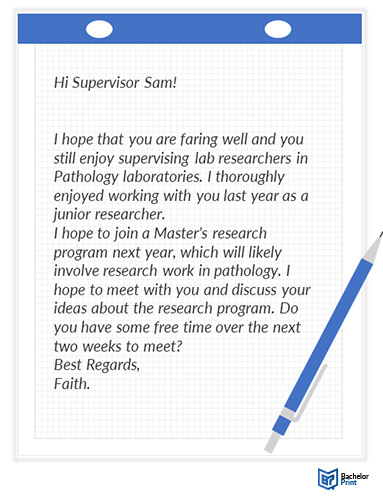
A letter of recommendation for graduate school is an essential part of an application that provides a deep assessment of a candidate’s potential for advanced academic studies. Typically authored by professors, employers, or other professionals familiar with the applicant’s competencies, it articulates the candidate’s intellectual capabilities and suitability for the graduate program. This article delves into the specifics of writing an influential letter of recommendation, including the structure, content, and key aspects of it.
Definition: Letter of recommendation
A recommendation letter is commonly written by an academic or professional supervisor vouching for the applicant’s good character, competencies, and academic work. A student should ask for a recommendation letter if they are considered for a certain educational program. A recommendation letter for graduate school can significantly influence the admission committee’s decision, providing a personalized glimpse into the applicant’s qualifications beyond transcripts and test scores.
- ✓ Free express delivery
- ✓ Individual embossing
- ✓ Selection of high-quality bindings
Letter of recommendation: Whom to ask
The most fundamental process of asking for a recommendation letter is deciding who will write it. The best person to write a letter of recommendation is someone the student has worked with away from the class environment—for example, a former supervisor.
An admissions committee wants someone that can vouch for the student’s ability to perform well in the program. The recommender should, therefore, know the student well.
Before choosing a recommender, the student must consider the qualities that align with their specific program.
Research programs, including MPhil, DPhil, Ph.D., and Research Master’s, want to admit a student that has demonstrated their passion for research. Such qualities can barely be verified using academic documents.
The letter of recommendation plays a huge role in the admission of students to a graduate research program.
Letter of recommendation: Request a meeting
The second step is to request a meeting with the recommender. A student can request an appointment with a supervisor they last talked to a long time ago.
Their email should include a quick reminder of the student’s interaction with their potential recommender and it should reflect a balance between friendliness and directness.
The ideal option for the student is to arrange a meeting with the recommender in person.3 However, this may not be practical due to distance or other factors. In this situation, a simple email should suffice.

Ask for the letter of recommendation
A student should request a recommendation letter in an email or in-person meeting with the recommender. For this, the student should follow these guidelines:
- Discuss the programs they hope to pursue and their deadlines with the recommender
- During this process, they need to give the recommender adequate time.
- They should seek a good offer when asking for a recommendation.
- A letter of recommendation should be positive rather than neutral to help a student’s application.
- If the preferred recommender cannot give a strong recommendation, the student should look for a new person for a positive recommendation.
- The student should attach documents such as their resume, statement of purpose, writing samples, or personal statement in their email requesting a letter of recommendation.
Different programs may have specific tips that the recommenders should follow. In the case of research programs, the recommender should include any publications or projects the students have completed.
Letter of recommendation: Send a reminder
A student should email the recommender a few weeks before the deadline to remind them of the letter of recommendation. They should only send a few emails as the recommenders may be busy.
FAQs
A letter of recommendation shows that the writer believes the student has the skills and ability to join a program.
A former supervisor or professor.
Yes, if the recommender is available and willing to meet.
Yes, a student can take a recommendation from a non-professor—if the recommender is an expert in a particular field.
in Your Thesis
